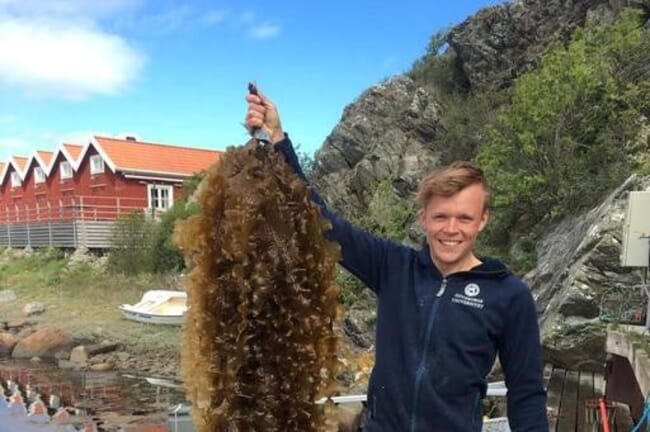
© Gothenburg University
So concludes Matthew Hargrave, the author of a new study into the integrated culture of the two species.
“In my study, I discovered that kelp grew larger when combined with mussels while also becoming cleaner. One of the biggest problems with aquaculture is the unwanted growth of other organisms, which lowers the quality of the harvest. My study showed that mussels filter out larvae from other organisms that would otherwise have colonised the kelp,” he explained.
“The goal is to co-cultivate different species to create a mini ecosystem where the by-products from one species can be used by another. The aim is to prevent valuable nutrients from being lost into the marine environment while also harvesting multiple species,” added the Gothenburg University student in a press release.
Since the mussels also filtered out particles from the water, the water became clearer, which allowed more sunlight to reach the kelp, encouraging more growth.
Another study Hargrave showed that better nutrient conditions made algae more resilient to climate changes. Lower salinity in the sea is one of the three major impacts of a changing climate.
“Low salinity can be a stress factor for algae and harm health. By providing extra nutrients and simulating a co-cultivation of several species, the algae, sugar kelp, oarweed and sea lettuce, gained additional resources to protect against the effects of stress,” he said.




